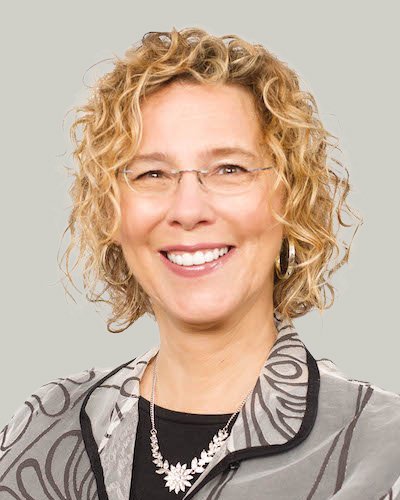 Winning With Therapy
Winning With Therapy
Understanding more about business through interactions with fellow Women Presidents Organization (WPO) members has led to exponential growth for clinical psychologist Margo Jacquot’s business.
Jacquot owns the award-winning The Juniper Center, one of the largest woman-owned counseling and therapy practices in Chicagoland. The practice employs more than 70 clinicians at five locations in the area, and in Illinois and Indiana, through teletherapy. It was included on the prestigious Inc. 5 000 list of fastest-growing private companies in 2022.
“I had been lacking colleagues who thought about our sector in a business way,” says Jacquot of the relief she felt when she joined one of WPO’s Chicago chapters about five years ago.
She first came across WPO members when she won Enterprising Women magazine’s 2018 Female Entrepreneur of the Year award (for consumer service businesses with 11 to 2 500 employees) and, at the awards ceremony, sat at a table with some WPO members also attending the awards ceremony.
“They spoke of the support they were receiving through the WPO and said it was like an advisory board for their businesses – that they received good, solid business advice. That’s what I was lacking at the time, so I joined.”
That Jacquot is an expert businesswoman is proven by the many accolades she has received. These include being on Crain’s Chicago Business’s 2020 list of Notable Entrepreneurs and being listed in 2019 as one of the WPO’s Women2Watch. She was also the 2017 Stevie Awards winner (Gold) for Women in Business and among the 2016 Women of Influence honorees listed by the Chicago Business Journal.
Jacquot started The Juniper Centre nearly 20 years ago when she decided she “wanted to be home for dinner after my son was born” and took on an associate to deal with the after-hours therapy sessions that psychologists have to offer to accommodate their patients’ working lives.
The business grew organically from there, and Jacquot is careful to plough a lot of the profit back into the center, ensuring that the clinicians and administrative staff who work for her are well cared for, including through offering full personal time off (leave) and retirement benefits.
“The idea of prospering financially from other people’s distress is often seen as distasteful, but over the years since I started The Juniper Center I have learned that there are ethical ways to run a counseling center as a business,” she says.
“I don’t think there is shame in running a business well so that the people who work for you are comfortable and have some padding in their lives,” she adds.
Jacquot also passes on what she has learned over the past 20 years of running a successful business by hosting a podcast, Your Mental Health Business Mentor, helping clinicians find the balance between providing compassionate client care and business agility to grow their mental health practice.
“Therapists are terrible business owners,” she says, explaining that the qualities that make a good clinician – excellent listening skills, compassion and the urge to support – can lead to too much leniency.
“Those are all good business skills, but you also need to know when to set limits and boundaries. I have done work with therapists across the country and we’re all guilty of that tendency towards being too understanding. In business, you cannot be endlessly compassionate.
“Therapists don’t like to talk about money – about how and when they are to be paid – but it is essential. I’m trying to help others so that they don’t have to learn the lessons I learned the hard way,” she says.
Part of the problem is that psychologists are not taught any business skills, says Jacquot. “You don’t need an MBA [Master of Business Administration degree], but then who are the mentors? For me, that’s where the WPO has come in.”
One of the most beneficial aspects of WPO membership is the affirmation she has received, says Jacquot. “Don’t be afraid to succeed and to talk about your success. Often that is really hard for women, but it adds credibility to you and your business.”
We couldn’t agree more.
